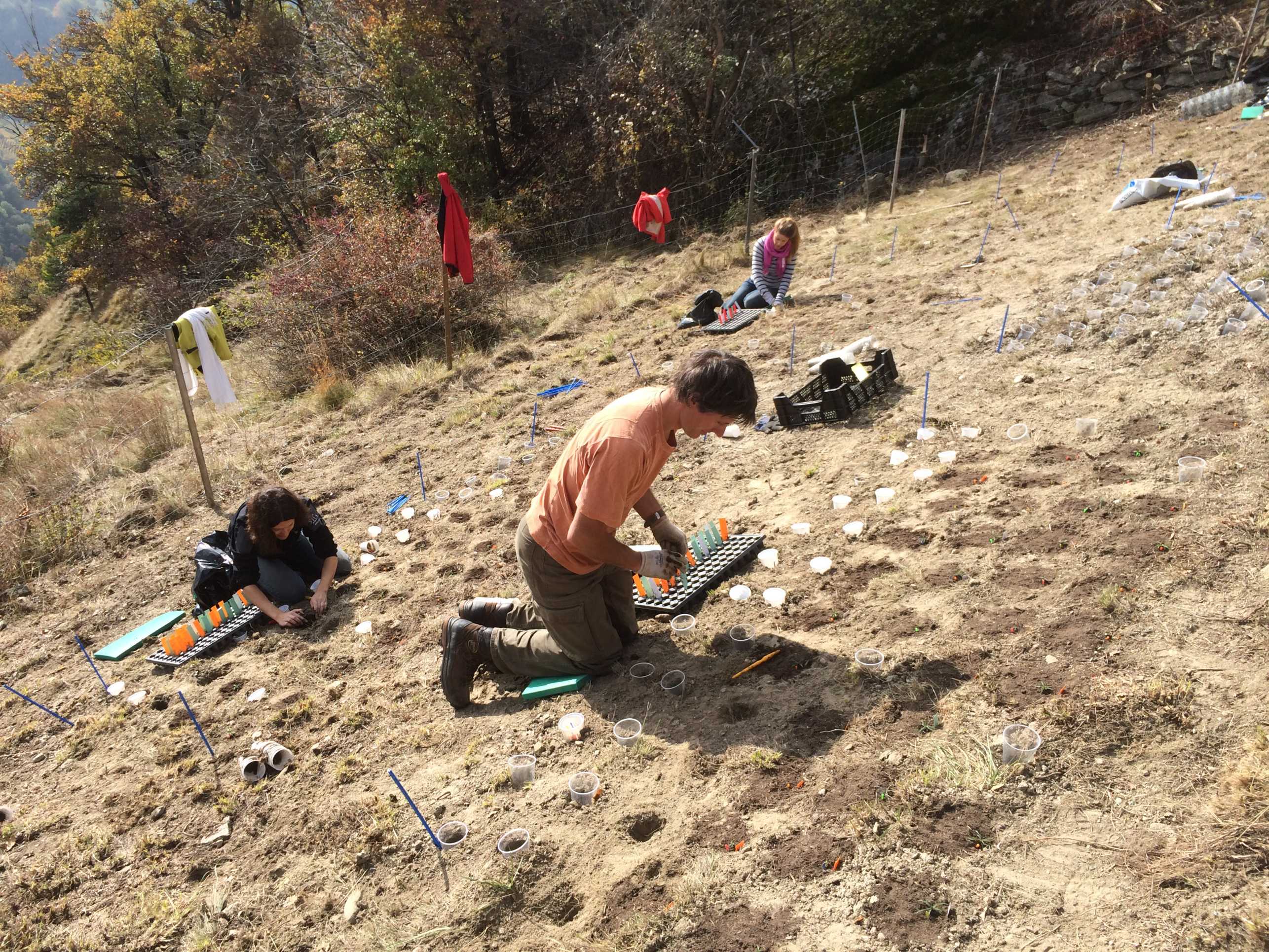Adaptation genomics
Altitudinal gradients in the Alps correspond to steep ecological gradients characterized by variation in both biotic and abiotic factors.
Plant populations in these environments commonly exhibit strong adaptation to contrasting conditions over short spatial distances, thus they represent ideal systems to uncover the mechanisms driving the evolution of local adaptation and the ability to respond to rapid environmental change.
We study the genomic basis of altitudinal adaptation in alpine carnations. To do so, we combine population genomics and ecological experiments to study the genetic basis of phenotypic traits contributing to altitudinal adaptation in two wild alpine carnation species (Dianthus; Caryophyllaceae). Our focal populations are located in the Swiss area of Valais. Here, in 2015 we established a long-term reciprocal transplant experiment to test plant performance under contemporary climatic conditions. Our work builds on the identification of adaptive variants through forward and reverse genetic approaches and validation of their functional and ecological role using evidence from molecular biology experiments and field trials. To further unravel the evolutionary origin of this adaptive variants, we extend our research into exploring the genetic potential that fueled the extreme diversity generated during the rapid radiation of carnations, and reconstructing the phylogeographic trajectories of alleles during the post-glacial recolonization of the Alps.


